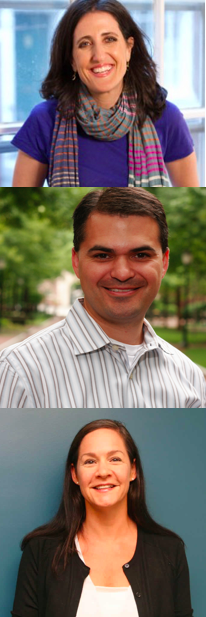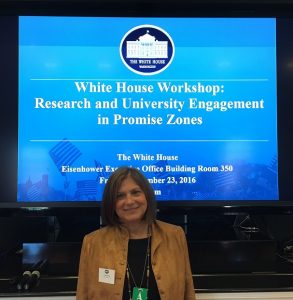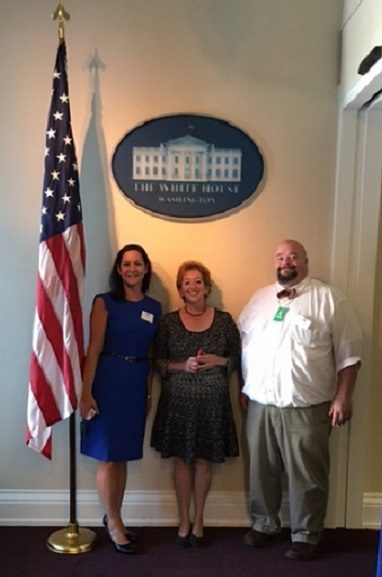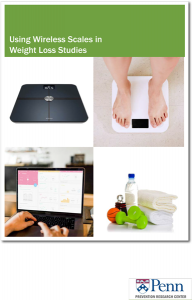Dec 19, 2016
 In a recent Fox News Health report, UPenn PRC Community Engagement Core Lead Carolyn Cannuscio ScD, shed light on the role modern-day libraries can play as multi-faceted community resource centers. “Some people would argue that libraries are old-fashioned, outmoded institutions that are irrelevant in the digital age,” said Cannuscio, a social epidemiologist at the University of Pennsylvania in Philadelphia. “Our work shows very clearly that libraries are vital, dynamic organizations that know their patrons well and respond creatively to community needs.”
In a recent Fox News Health report, UPenn PRC Community Engagement Core Lead Carolyn Cannuscio ScD, shed light on the role modern-day libraries can play as multi-faceted community resource centers. “Some people would argue that libraries are old-fashioned, outmoded institutions that are irrelevant in the digital age,” said Cannuscio, a social epidemiologist at the University of Pennsylvania in Philadelphia. “Our work shows very clearly that libraries are vital, dynamic organizations that know their patrons well and respond creatively to community needs.”
Through the Healthy Library Initiative, Cannuscio and fellow PRC Researchers David Grande, MD, MPA, and Heather Klusaritz, PhD, MSW identified ten programs aligned with the Free Library of Philadelphia which address social determinants of health within the Philadelphia community. After conducting interviews, the researchers found that libraries provided a safe space, for especially vulnerable populations which include “homeless people, people with mental illness and substance use, recent immigrants, and children and families suffering from trauma.”
In this new model, librarians assist with employment searches, applications for health insurance, and support other helpful programs such as classes on nutrition and youth leadership. The 54 libraries across the city of Philadelphia see 5.8 million in-person and 9.9 million online visits annually. Cannuscio emphasizes the importance of having a space that provides shelter and services without any charge.
Read more about the study in Health Affairs.
Oct 5, 2016

On September 23, 2016, PRC Principal Investigator, Fran Barg, PhD, and Co-Investigators Heather Klusaritz, PhD, Karen Glanz, PhD and Peter Cronholm, MD, for the Philadelphia Health Leadership Institute (PHLI) project traveled to Washington to participate in a White House Workshop on Research and University Engagement in Promise Zones.
In his 2013 State of the Union address, President Obama announced the establishment of the Promise Zones Initiative to partner with high-poverty communities across the country to create jobs, increase economic security, expand educational opportunities, increase access to quality, affordable housing, and improve public safety. Philadelphia was one of three cities to receive the first Promise Zone designations in 2014. Today, twenty-five communities have received a Promise Zone designation.
The White House workshop brought together leading researchers and academic institutions from Promise Zone communities to examine how university partnerships can support Promise Zone initiatives and advance the goals of the program.

Dr. Klusartiz lead the Access to Care working group and, with Drs. Barg and Glanz, participated in a discussion on best practices for academic-community partnerships and the challenges faced in building these partnerships. The PHLI was used as an example of the capacity building role universities bring to partnering with Promise Zone communities.
Klusaritz said “this event demonstrates the Federal government’s commitment to promoting and supporting Academic-Community partnerships. And the participants showed an equal commitment to addressing the concentration of health and social needs in their Promise Zone neighborhoods.” Noting the importance of the Promise Zone initiative and of the role of universities in working towards President Obama’s declaration that a “person’s zip code shouldn’t decide their destiny,” Klusaritz added “sharing time with other Promise Zone projects around the country brought home how our Penn PHLI project is uniquely positioned to build capacity to effect change in the Philadelphia Promise Zone.”
.
 In a recent Fox News Health report, UPenn PRC Community Engagement Core Lead Carolyn Cannuscio ScD, shed light on the role modern-day libraries can play as multi-faceted community resource centers. “Some people would argue that libraries are old-fashioned, outmoded institutions that are irrelevant in the digital age,” said Cannuscio, a social epidemiologist at the University of Pennsylvania in Philadelphia. “Our work shows very clearly that libraries are vital, dynamic organizations that know their patrons well and respond creatively to community needs.”
In a recent Fox News Health report, UPenn PRC Community Engagement Core Lead Carolyn Cannuscio ScD, shed light on the role modern-day libraries can play as multi-faceted community resource centers. “Some people would argue that libraries are old-fashioned, outmoded institutions that are irrelevant in the digital age,” said Cannuscio, a social epidemiologist at the University of Pennsylvania in Philadelphia. “Our work shows very clearly that libraries are vital, dynamic organizations that know their patrons well and respond creatively to community needs.”


